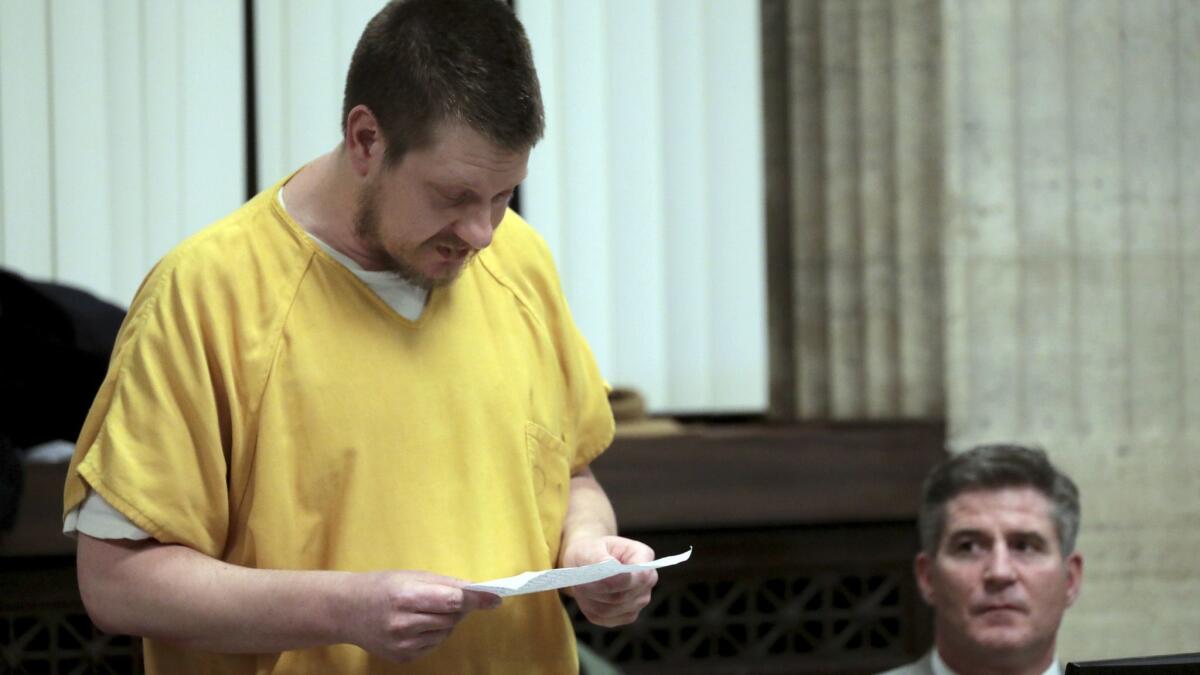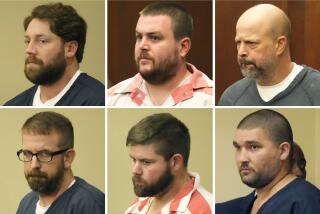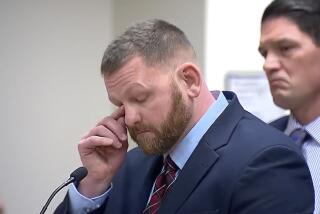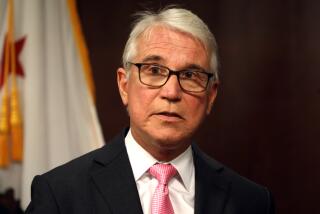Chicago cop who shot Laquan McDonald got nearly 7 years. Black teen’s family asks: Was justice done?

The explosive video of a white Chicago officer shooting a black teenager 16 times shocked consciences around the world with footage of Laquan McDonald gunned down as he walked away from police.
The graphic images of Laquan crumpling to the street while bullets kept striking him stirred expectations that the officer might be convicted in the killing and pay a heavy price in prison time.
The verdict came in October — a rare murder conviction for an officer in an on-duty shooting. But the sentencing of less than seven years late Friday for Jason Van Dyke — and the possibility that he may serve half that — led Laquan’s family and at least one activist to question whether justice had been done and the right message sent to other officers.
William Calloway, who was instrumental in the legal battle that led to the release of the dashcam video in 2015, described the penalty as “a slap in the face to us and a slap on the wrist” for Van Dyke.
The sentencing came a day after a different judge acquitted three officers accused of lying about the shooting to protect Van Dyke, who was probably the first Chicago officer ever found guilty in the shooting of an African American.
That verdict also disappointed many Chicagoans who hoped convictions would help eradicate a code-of-silence culture that dates back decades among officers in the nation’s third most populous city.
Van Dyke, 40, was convicted of second-degree murder and 16 counts of aggravated battery — one for each bullet fired at the 17-year-old.
Laquan’s family lamented that the penalty was too light. His great uncle said the sentence reduced Laquan’s life to that of “a second-class citizen” and “suggests to us that there are no laws on the books for a black man that a white man is bound to honor.”
In a brief statement, Van Dyke acknowledged the teen’s death, telling the judge that “as a God-fearing man and father, I will have to live with this the rest of my life.”
The sentence of six years and nine months was less than half the penalty that had been sought by prosecutors, who asked for 18 to 20 years. But it went far beyond the request of defense attorneys, who argued that Van Dyke could be released on probation. The prison term also was a fraction of what Van Dyke could have faced had he been convicted of first-degree murder, which carried a mandatory minimum of 45 years in prison.
Judges typically rebuke defendants during sentencings, even for much lesser crimes, and they often explain why they imposed the sentence they did. Judge Vincent Gaughan did neither.
The judge’s decision to deem the second-degree murder conviction the most serious crime — siding with the defense on that question — may also have spared Van Dyke a far longer term behind bars.
Had Gaughan sentenced Van Dyke on the 16 counts of aggravated battery, as prosecutors asked him to do, he could have faced decades in prison. Each aggravated battery count carried a mandatory minimum of six years, and the judge could have ordered those sentences to be served one after the other.
The lead defense attorney, Dan Herbert, said Van Dyke “truly felt great” after learning his sentence. “He was happy about the prospect of life ahead of him” and someday being reunited with his wife and two daughters.
The prosecutor who oversaw the case said he can live with the sentence.
“Our goal was to find the truth, present the truth and ask for justice. ... It was not revenge,” special prosecutor Joseph McMahon said.
The issue of race loomed over the case for more than four years, although it was rarely raised at trial. One of the only instances was during opening statements, when a prosecutor told jurors that Van Dyke saw “a black boy walking down the street” who had “the audacity to ignore the police.”
On Friday, several black motorists testified that the officer used a racial slur and excessive force during traffic stops in the years before the shooting.
City Hall released the video to the public in November 2015 — 13 months after the shooting — and acted only because a judge ordered it to do so. The charges against Van Dyke were not announced until the day of the video’s release.
More to Read
Start your day right
Sign up for Essential California for news, features and recommendations from the L.A. Times and beyond in your inbox six days a week.
You may occasionally receive promotional content from the Los Angeles Times.






